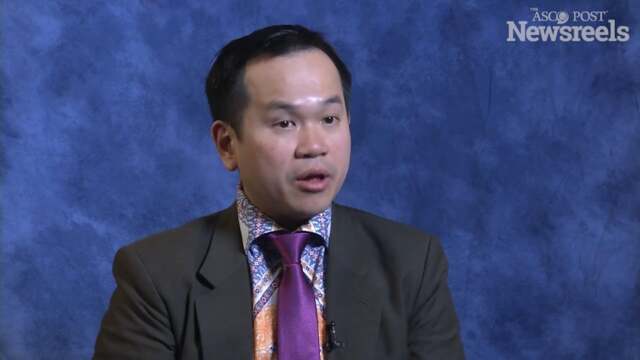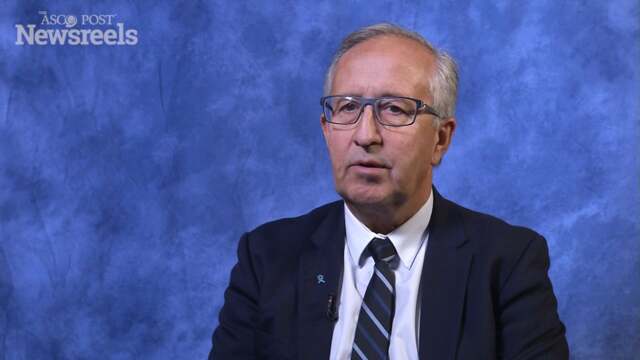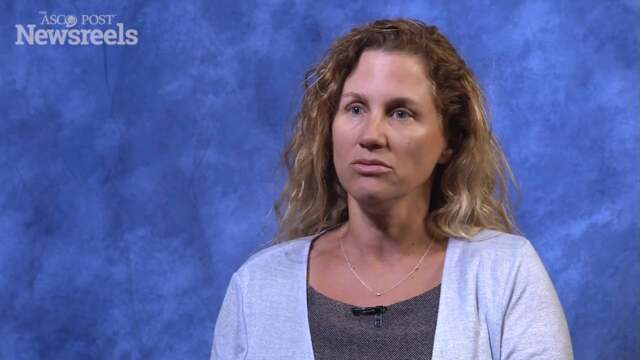Daniel Hamstra, MD, PhD, on Prostate Cancer: Decreasing Rectal Toxicity
2016 ASTRO Annual Meeting
Daniel A. Hamstra, MD, PhD, of Texas Oncology, discusses phase III findings on the use of an absorbable hydrogel spacer designed to decrease rectal toxicity and improve bowel quality of life for patients with prostate cancer. (Abstract LBA-6)
Richard T. Hoppe, MD, of Stanford University, summarizes a session on improving outcomes by enhancing old and new indications in follicular lymphoma and Hodgkin lymphoma. (Scientific Session 5)
Paul L. Nguyen, MD, of the Dana-Farber Cancer Institute, summarizes a session he moderated, which included talks on local recurrence following brachytherapy, long-term PSA stability after the procedure, and androgen deprivation and high-dose radiotherapy. (Scientific Session 41)
Thomas J. Lynch, Jr, MD, of Massachusetts General Hospital, summarizes his keynote lecture on whether we are any closer to curing lung cancer with targeted treatments. (Keynote Address 2)
Anders Widmark, MD, PhD, of the Umea University Hospital Oncology, discusses the early toxicity results from the phase III Scandinavian study on extreme hypofractionation vs conventionally fractionated radiotherapy for intermediate-risk prostate cancer. (Abstract LBA-5)
Joanne B. Weidhaas, MD, PhD, of the University of California, Los Angeles Radiation Oncology, discusses the KRAS variant as a biomarker of cetuximab response and altered immunity in head and neck cancer. (Abstract LBA-11)





